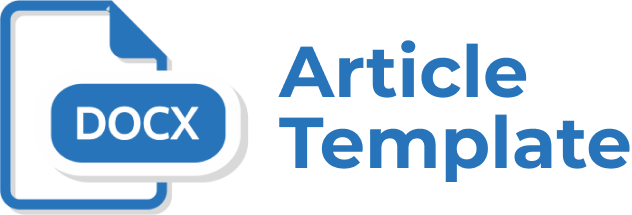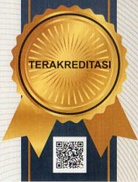Kesetaraan Gender Akuntan Akademisi Perempuan Pasca Pandemi: Tantangan atau Rintangan Keberlanjutan Karir?
Abstract
This research was sparked from the diversity of research results regarding gender equality in the accounting profession. Many studies have concluded that equality between women and men especially in the accounting profession. On the other hand, there are also many studies that find that gender discrimination against female accountants is still rife. Based on this fact, this research expands the study of gender equality within the scope of vocational education by combining quantitative studies through measuring the perceptions or beliefs of female academic accountants using the Career Pathways Survey (CPS) and qualitative methods using phenomenological approach. The results of a survey of 50 female and an empirical study of 5 of them resulted in findings that gender equality has not been fully realized. The “voice” of female is divided into two parts: women who feel gender equality and women who experience gender discrimination. The reality arises from the organizational environment but cannot be separated from internal influences. Female academic accountants feel that feminist stereotypes are indeed “decent” to limit their career development steps. On the other hand, female academic accountants in polytechnic circles who are classified as advanced state that there is no difference in treatment between women and men.
Keywords
Full Text:
PDFReferences
Adamovic, M., & Leibbrandt, A. (2023). Is There a Glass Ceiling for Ethnic Minorities to Enter Leadership Positions? Evidence From a Field Experiment with Over 12,000 Job Applications. The Leadership Quarterly, 34, 1-13.
Athena, F. W., & Tudor, A. T. (2019). Gender as a Dimension of Inequality in Accounting Organizations and Developmental HR Strategies, Administrative Science, 10, 1-24.
Baldo, M. D., Tudor, A. T., & Faragalla, W. A. (2018). Women’s Role in the Accounting Profession: A Comparative Study Between Italy and Romania. Administrative Science, 9, 1-23.
Beatson, J. (2019). Making Psychological Treatments for Borderline Personality Disorder Available. Australasian Psychiatry, 27, 545-546.
Creswell. J. W., & Creswell, J. D. (2017) Research Design: Qualitative, Quantitative, and Mixed Methods Approaches. 4th Edition, Sage, Newbury Park.
Eden, L., & Wagstaff, M. F. (2021). Evidence-Based Policymaking And The Wicked Problem Of SDG 5 Gender Equality. Journal of International Business Policy, 4, 28-57.
Fathy, E. A., & Youssif, H. A, (2020). The Impact of Glass Ceiling Beliefs on Women’s Subjective Career Success in Tourism and Hospitality Industry: The Moderating Role of Social Support. The Scientific Journal of the Faculty of Tourism and Hotels, Alexandria University, 17, 136-162.
Filho, W. L., Tripathi, S. K., Guerra, J. B. S. O., Gine, R., Lovren, V. O., & Willats, J. (2022). Using The Sustainable Development Goals Towards a Better Understanding of Sustainability Challenges. The International Journal of Sustainable Development and World Ecology, 26, 1-12.
Flynn, A., Earlie, E. K., & Cross, C. (2015). Gender Equality in The Accounting Profession: One Size Fits All. Gender in Management, 30, 479-499.
Haynes, K. (2018). Accounting As Gendering and Gendered: A Review Of 25 Years of Critical Accounting Research on Gender. Critical Perspectives on Accounting, 45, 1-43.
Heaton, J. (2022). “Pseudonyms Are Used Throughout”: A Footnote, Unpacked. Qualitative Inquiry, 28, 123-132.
Hidayat, M. R., & Dwita, S. (2020). Analisis Gambar “Kesetaraan Gender” Dalam Dunia Digital: Sebuah Eksplorasi Pada Ikatan Akuntan Indonesia. Jurnal Eksplorasi Akuntansi, 2, 2214-2233.
Khosbahari, R., Hosseinpour, V., & Pourkazemi, V. (2022). Glass Ceiling for Woman and Work Attachments: The Moderating Effect of Marital Status (Case Study: Female Employees of Health Centers in the East of Gilan Province). Open Science Journal, 1, 1-14.
Lusiono, E. F., & Noviriani, E. (2019). “Menumbuhkan Jiwa Sherlock Holmes Seorang Calon Akuntan,” Journal of Applied Accounting and Taxation, 4, 28-38.
Maddrell, A., Thomas, N. & Wyse, S. (2019). Glass Ceilings and Stone Floors: An Intersectional Approach to Challenges UK Geographers Face Across the Career Lifecycle. Geografiska Annaler: Series B Human Geography, 101, 7-20.
Malo, P., & Mkhitaryan, M. (2022). Choices Or Obstacles? Glass Ceiling in Accounting and Audit Profession: A Cross-Country Comparison. (Honor Theses). Lund University, Swedia.
Martin, N. (2021). Are Socially Constructed Biases Keeping the Glass Ceiling Alive? (Dissertation). Appalachian State University, North Carolina.
Miles, M. B., & Huberman, A. M. (1994). Qualitative Data Analysis: An Expanded Sourcebook. Thousand Oaks, CA: Sage Publications.
Noviriani, E. (2019). “Eksplorasi Kecerdasan Daya Juang (Adversity Quotient) Mahasiswa Akuntansi Dalam Tinjauan Fenomenologi,” Sebatik, 25. 418–425.
Poopola, T., & Karadas, G. (2022). How Impactful Are Grit, I-Deals, and the Glass Ceiling on Subjective Career Success? Sustainability, 14, 1-18.
Roman, M. (2017). Relationships Between Women's Glass Ceiling Beliefs, Career Advancement Satisfaction, and Quit Intention. Walden Dissertations and Doctoral Studies. 3830.
Smith, P., Critenden, N. & Caputi, P. (2012). Measuring Women's Beliefs About Glass Ceilings: Development of The Career Pathways Survey. Gender in Management, 27, 68-80.
Ude, A. O. (2019). Implications of Gender Sensitivity on Accounting Practice in Nigeria. International Journal of Research in Business Studies and Management, 6, 1-5.
Wilkin, C. L., Alamin, A. A., Yeoh, W., & Warren, M. (2019). The Impact of Self-Efficacy on Accountants’ Behavioural Intention to Adopt and Use Accounting Information Systems. Journal of Information System, 32, 1-51.
William, M. (2022). Determining Female Employees' Perception of The Glass Ceiling Phenomenon in South Africa's Business Environment. (Dissertation). North-West University, South Africa.
DOI: https://doi.org/10.32487/jshp.v8i1.1864
Refbacks
- There are currently no refbacks.
JSHP: Jurnal Sosial Humaniora dan Pendidikan
is licensed under a Creative Commons Attribution-ShareAlike 4.0 International License (CC BY-SA 4.0)




